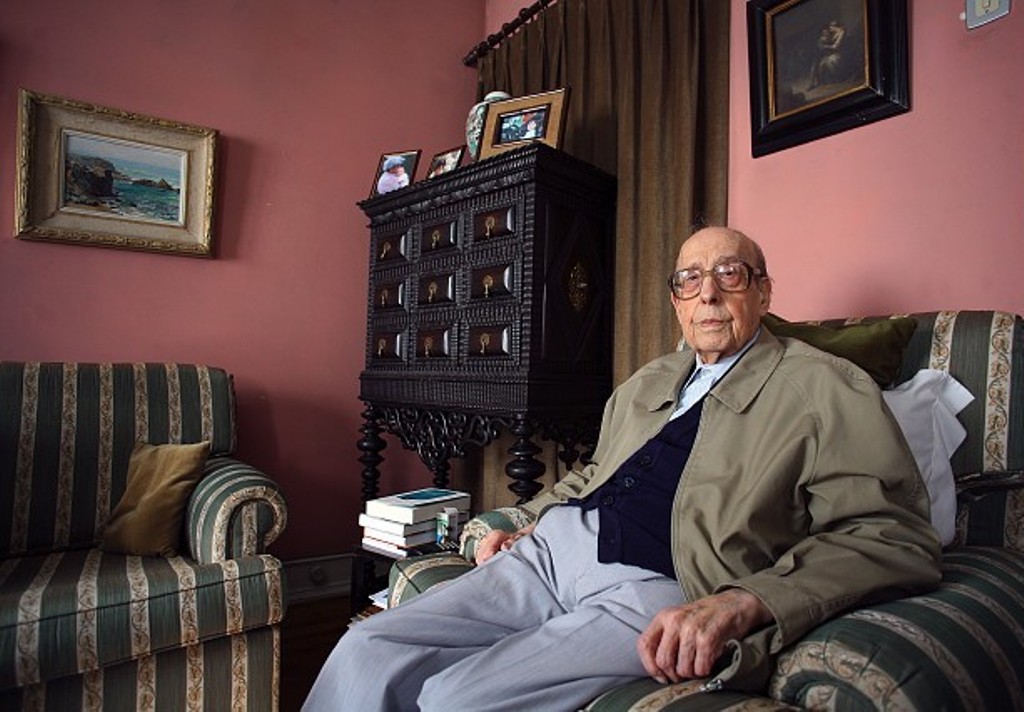<Back to Index>
- Historian Vitorino Barbosa de Magalhães Godinho, 1918
- Composer Johann Andreas Herbst, 1588
- Tsar of All Russia Feodor III Alexeevich, 1661
PAGE SPONSOR


Vitorino Barbosa de Magalhães Godinho (Lisbon , June 9 of 1918 - Lisbon, April 26 of 2011 ) was considered one of the most notable Portuguese academics, one of the names of current historiography that began to develop around the " Revue des Annales " - Annales d'histoire économique et sociale (Annals of Social and Economic History), fostered by French historians Marc Bloch and Lucien Febvre, then at the University of Strasbourg .
He
was Professor at the Universidade Nova de Lisboa, Department of
Sociology FCSH, and Doctor ès-Lettres from the Sorbonne, Faculty
of Arts, University of Paris, Paris, France, where he cemented much of
its academic and scientific life. Its
academic name is identified largely with the New University of Lisbon:
Professor Vitorino Magalhães Godinho was one of the pioneers of
Social Sciences in Portugal and founder of the New Sociology. His
critical spirit, his attitude, problem solving capacity and
theoretical skills played a central role in the founding of the institution, where there is a thorough
fusion between the Historiography and Sociology, very much in line with
the second phase and third phase of "Revue des Annales". Professor
Vitorino Magalhães Godinho is the Portuguese academic who best
represents this historiographical current close of Sociology. Having begun his studies for philosophy he soon became interested in the history. He started research on the History of Discoveries and Portuguese Expansion. His initial investigations were concerned with a meticulous scholarly work on the sources and with an attempt to accurately describe the local cultures and civilizations before the arrival of the Portuguese. He pursued his main studies at the Ecole Pratique des Hautes Etudes in Paris - with Lucien Febvre, Fernand Braudel and Ernest Labrousse. He integrated the current historiography that developed around the "Revue des Annales" (Annales school). He distinguished
himself by resisting the dictatorship (which distanced him twice from
the Portuguese university) and also by his contributions to
civic democracy, which resulted in several publications. He submitted the original proposals for reform of the Portuguese education system in A course for education (1974). Noted
for the accuracy
of his accounts, his novel methodology and the emphasis he placed on
studying the sources as cultural objects, as well as using test
measurements and cross
fertilizing historical studies with social sciences, his theoretical
and applied skills resulted in a remarkable innovation of historical
studies in
Portugal. As
he wrote in one of his earliest works, "it is not possible to analyze the
problems of contemporary Portuguese reality without inserting them into
the fabric of our country's evolution, that is, without examining the
conditions for shaping the world we live in, the genesis of our culture
of our society, the political - economic structure of Portugal." Vitorino
Magalhães Godinho is often considered one of the most notable
Portuguese historians, has a large number of published works, founded the sociological approach of Historiography, close to pure sociology. During the dictatorship of Salazar,
he published several books of pure sociology. President Soares referred to Professor VMG as "an exemplary citizen. A man of honor, of
an exceptional character and an unusual moral and intellectual honesty.
His work ranks him among the greatest Portuguese historians."